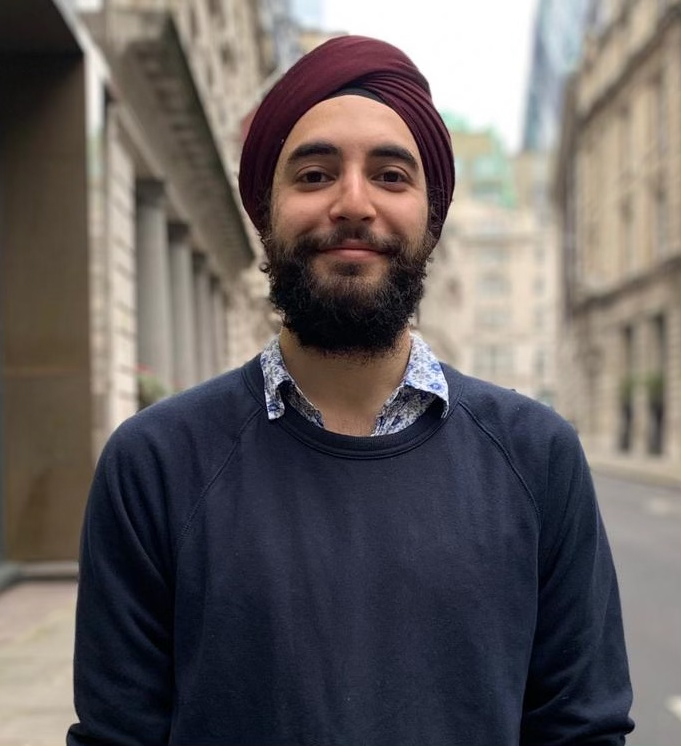Why do firms participate in politics? Scholars tend to assume instrumental intent behind corporate political activity, describing firms as making profit-maximizing investments in the political arena. However, I show that for the most common type of firm in the world, the family firm, non-economic incentives may shape its politics. I argue a family's control over corporate resources and its embeddedness in social networks predict the family firm to deviate from a purely opportunistic political strategy, and instead reflect social motivations and kinship ties. I assemble the universe of corporate campaign contributions to political parties in India from 2003-2021 and develop a new measure of family involvement in firm operations by using demographic details from a company's board of directors. I find that despite operating in a competitive multi-party environment, family firms tend to loyally support a single co-ethnic political party, with little evidence that this strategy pays dividends in the form of private political favors. These findings update our priors on why we think corporations participate in politics in the first place, provide a new explanation for why corporate returns to politics remain elusive, and highlight the need to examine a firm's internal structure to understand its political activity.
Sukrit Singh Puri

Assistant Professor
London Business School
sukritp@london.edu
CV |
LinkedIn |
Twitter
Hello! I am an Assistant Professor of Strategy & Entrepreneurship at the London Business School.
I study how business navigates politics in emerging markets, with a focus on India. I received my PhD in Political Science from MIT, and hold an AB in Economics from Princeton. Prior to academia, I worked as an investment analyst at Goldman Sachs.
My work has been covered by MIT News, and the Ideas of India podcast. I delivered a series of lectures on India's political economy at UChicago's Booth School of Business titled "Capitalism with Indian Characteristics."
Working Papers (Available on Request)
Corporate Kinship: Political Attachments of the Family FirmPreprint
With Boris Vallée (INSEAD)
Previously titled "Reputational Costs of Revealing Political Connections"
This paper investigates hidden corporate political activity using a rare and high-profile disclosure event in India. From 2018 onwards, firms could anonymously donate to political parties via ``electoral bonds.'' A 2024 Supreme Court ruling banned the practice and retroactively revealed details of all $2 billion of previously hidden donations. We link these data to a newly assembled dataset of disclosed contributions going back to 2003 and firm-level administrative records to examine how the introduction of an opaque channel changes the dynamincs of corporate campaign finance. We present four main findings. First, anonymous giving dwarfs disclosed contributions. Second, more sophisticated firms select into the hidden channel. Third, firms giving in secret behave more strategically: giving more often, in larger amounts, and to multiple parties. Fourth, losing anonymity is costly: when donors were unmasked, their stock prices experienced sharp abnormal underperformance, driven by negative press following the reveal, and consistent with a theory of reputational taint that accrues from participating in politics. This study offers rare empirical insight into the scale and consequences of dark money, and highlights the incentives firms face in choosing whether to stay in the shadows.
The study of money in politics has largely remained restricted to developed countries, where data are more readily available. But the concerns about corporate political funding, and how business influences the state broadly, are a global phenomenon. I collect all donations to political parties in India between 2003-2021, by taking advantage of a successful Right to Information Act that require all political parties to disclose donations made above Rs 20,000 (approx 250 USD). By developing a web-scraping based entity resolution algorithm that outperforms conventional exact and fuzzy string matching techniques, I am able to uniquely identify the universe of over 7000 corporate donors making donations to 40 political parties over the 18 year period. In this paper, I describe the steps taken to construct this dataset, describe a set of five stylized facts about the nature of corporate-political linkages in the world's largest democracy, and highlight a set of empirical puzzles that challenge expectations from the literature and invite future scholarship on this topic.
How do elections affect firms' growth strategies? Using administrative data on large capital expenditure projects in India (1995-2024) and exploiting 171 staggered state elections, I apply a real options framework to show that pre-electoral uncertainty produces opposing effects on investment behavior. In a stacked differences-in-differences design, I find firms delay new project announcements by 7% in the three months before elections while simultaneously accelerating existing project completions by a similar magnitude. This divergent response---delay versus accelerate---challenges the conventional view that political uncertainty uniformly depresses economic activity. After elections, firms appear to strategically reallocate capital to curry favor with new leadership: with the incoming chief minister's home district receiving a disproportionate increase in new investment projects. These findings demonstrate that electoral cycles create distinct strategic logics for capital deployment, with firms using both timing and geography as tools for navigating political uncertainty and building access to power.
Select Ongoing Projects
Political Drivers of Corporate Social ResponsibilityWith Christiane Bode (Imperial), Aline Gatignon (HEC Paris)
The 2013 update to the Companies Act in India required all large corporates to spend 2% of trailing three-year net profit on Corporate Social Responsibility (CSR). In this project, we examine granular project-level CSR spending data and use staggered state-level elections to study how political influence may shape when, where, and how firms allocate their CSR budgets.
With Nupur Bang (ISB), Aastha Mishra (ISB), Vishan Nigam (MIT), Sougata Ray (ISB), Shivram Viswanathan (Harvard)
A detailed multi-wave survey of family businesses in India probing the nature and extent of family involvement in corporate governance, strength of social and ethnic attachments of the controlling family, and series of market and non-market decisions of the firm, inlcuding hiring, financing, political participation. Currently in pilot.
Upcoming Events
Department of Quantitative Political EconomyKings College London, February 2026
PEDL 15th Anniversary Conference
University of Oxford, March 2026